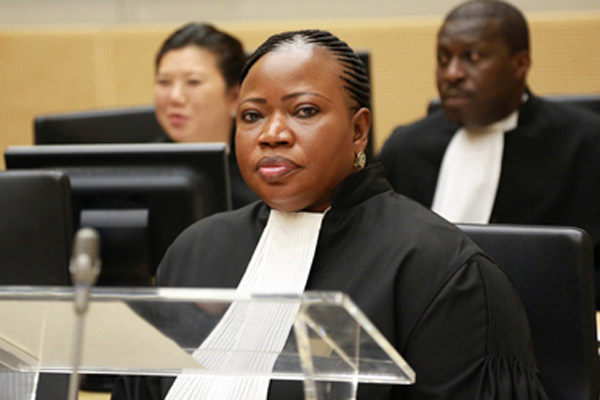
The prosecution on Monday claimed it had evidence to prove that the seven witnesses who withdrew from the trial of Deputy President William Ruto had been bribed and intimidated to do so.
Trial lawyer Anton Stynberg said this explained why witnesses P- 0015, P-0016, P-0336, P-0397, P-0516, P-0524 and P-0495 withdrew their cooperation with the office of the prosecutor.
He made the submissions during the continuation of a status conference convened to discuss whether the witnesses could be summoned to testify before the International Criminal Court.
UNDUE INFLUENCE
“The prosecution has evidence in the case of each of the seven witnesses of intimidation, bribery and other improper influence which has been the approximate cause of the failure to cooperate with the office of the prosecutor,” he said.
He spoke as the trial against Mr Ruto and one time radio journalist Joshua Arap Sang resumed with witness Dr Herve Maupeu also known as P464 giving his submission under the guidance of trial lawyer Lucio Garcia.
The witness, who spoke entirely in French, is a European based expert, who is expected to provide the historical roots of the violence.
While urging the court to order that the witnesses be brought to testify, Mr Stynberg said the prosecution believed that their original statements represented true accounts of what transpired during the 2008 violence and any subsequent denials or recantations were false.
The witnesses, he said, gave their statements voluntarily over a period of several hours, even days, pointing out that in the case of five out of the seven, their testimonies were audio recorded, putting further safeguards against improper influence.
The trial lawyer said only three out of the seven witnesses who include P15, P16 and P336 had recanted their statements.
“The remaining four witnesses have refused to testify…If removed from any undue influence and under the prosecution’s questions, they may tell the truth and confirm their original statements,” he went on.
Earlier on, Mr Wilfred Nderitu, who represents victims of the violence, said the creation of the International Crimes Act was intended to give power to the courts to summon witnesses.
He said the Rome Statute also recognises both voluntary and compelled appearance before court. However, Mr Karim Khan, the Deputy President’s lawyer and Mr Katwa Kigen, who represents Mr Sang, differed with Mr Nderitu and the prosecution’s arguments.
“If a witness does not voluntarily want to appear before court, he should not be forced to appear before it and testify,” said Mr Khan.
Mr Kigen on the other hand said;
“The court has no compelling power. The evidence issued must be voluntary. If the government issues summons requiring a witness to appear before the court, it will be the witness that will determine whether to attend the court or not.”
Source-nation.co.ke







